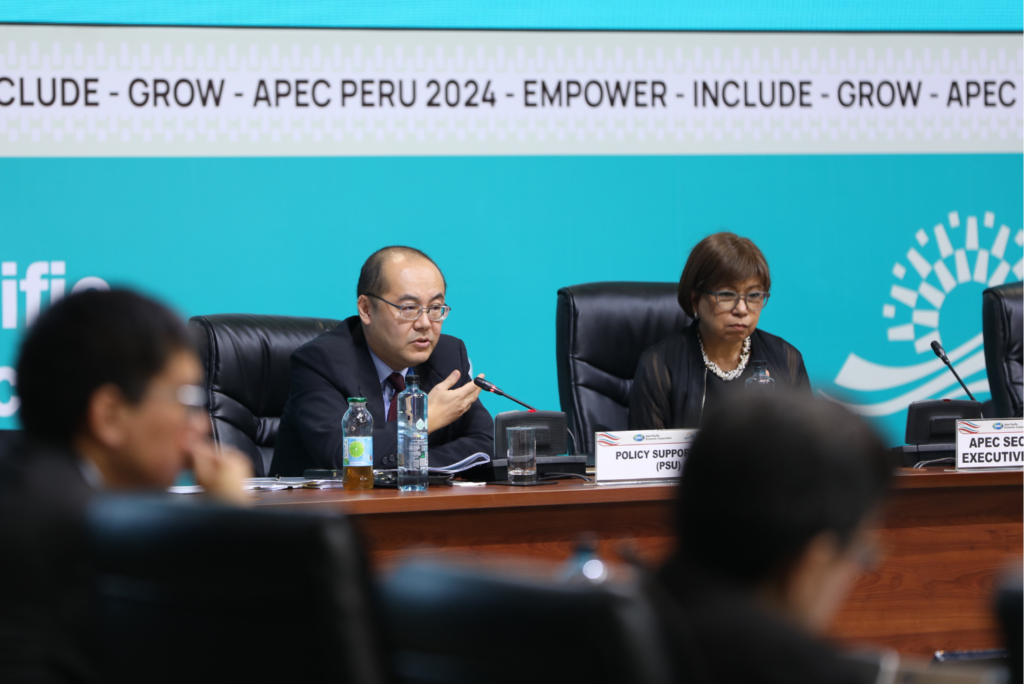APEC Business Advisory Council Calls for New Climate Bonds, Carbon Credit Network

- APEC businesses urge decisive action to boost trade, digitalization, and climate response.
- ABAC finalizes recommendations for APEC Leaders, focusing on trade barriers, digitalization, and sustainable growth.
- Calls for public-private collaboration to finance energy transition and disaster resiliency.
The APEC Business Advisory Council (ABAC) wrapped up its Tokyo meeting with a strong call for action on trade, digitalization, and climate response.
Urgent Economic and Climate Action
“Tackling trade and investment barriers, promoting digitalization, and accelerating the climate response is urgent. We can’t wait any longer,” said Julia Torreblanca, the 2024 Chair of ABAC.
Strategic Recommendations for Leaders
ABAC finalized its recommendations for APEC Leaders under the theme ‘People, Business, and Prosperity.’ These will be presented at the APEC Economic Leaders’ Week in November in Lima, Peru. Recommendations also target Ministers of Finance, Health, Energy, Food Security, and SMEs.
“Achieving our goals requires a seamless commercial environment built on strong foundations. APEC needs to make the Free Trade Area of the Asia-Pacific a reality, and ensure that the World Trade Organization (WTO) remains relevant and effective,” Torreblanca emphasized.
Digitalization and Trade
“All APEC economies should join the new WTO E-commerce Agreement, which prevents the use of tariffs on digital trade and lays a critical foundation,” Torreblanca added. She highlighted the need for a renewed APEC Investment Facilitation Agenda and enhanced supply chain cooperation.
“Another key focus of ABAC is on boosting interoperable digitalization in our region and enabling small businesses to access digital tools like interoperable paperless trade and artificial intelligence (AI),” she said. “All this, within an AI framework that maximizes benefits while mitigating the risks, particularly for workers.“
Supporting SMEs and Entrepreneurs
“We have also identified concrete actions to enable micro, small, and medium enterprises, especially those led by women and Indigenous entrepreneurs, as well as those in the informal economy, to succeed,” Torreblanca noted.
Addressing the Climate Crisis
Torreblanca called for urgent collective action on climate: “The world has now experienced over 12 consecutive months of temperatures exceeding 1.5 degrees above pre-industrial levels. Public-private sector collaboration will be essential to unlock and scale up financing for the energy transition, innovation, and disaster resiliency.”
“We are also advocating for a new Greener Trade Framework to support emissions reduction throughout supply chains and the transition to a low-carbon economy,” she stressed.
Related Article: Indigo Ag Delivers Record 40,000 Carbon Credits to Microsoft Under Soil Enrichment Protocol
Engagement with Local Leaders
ABAC delegates engaged with Japan’s Prime Minister Fumio Kishida, Minister for Foreign Affairs Yoko Kamikawa, Minister of Economy, Trade and Industry Saito Ken, Minister for Digital Transformation Taro Kono, and Mayor of Tokyo Yuriko Koike. Torreblanca thanked the Japanese government and ABAC Japan for their support and excellent hosting of the meeting.








